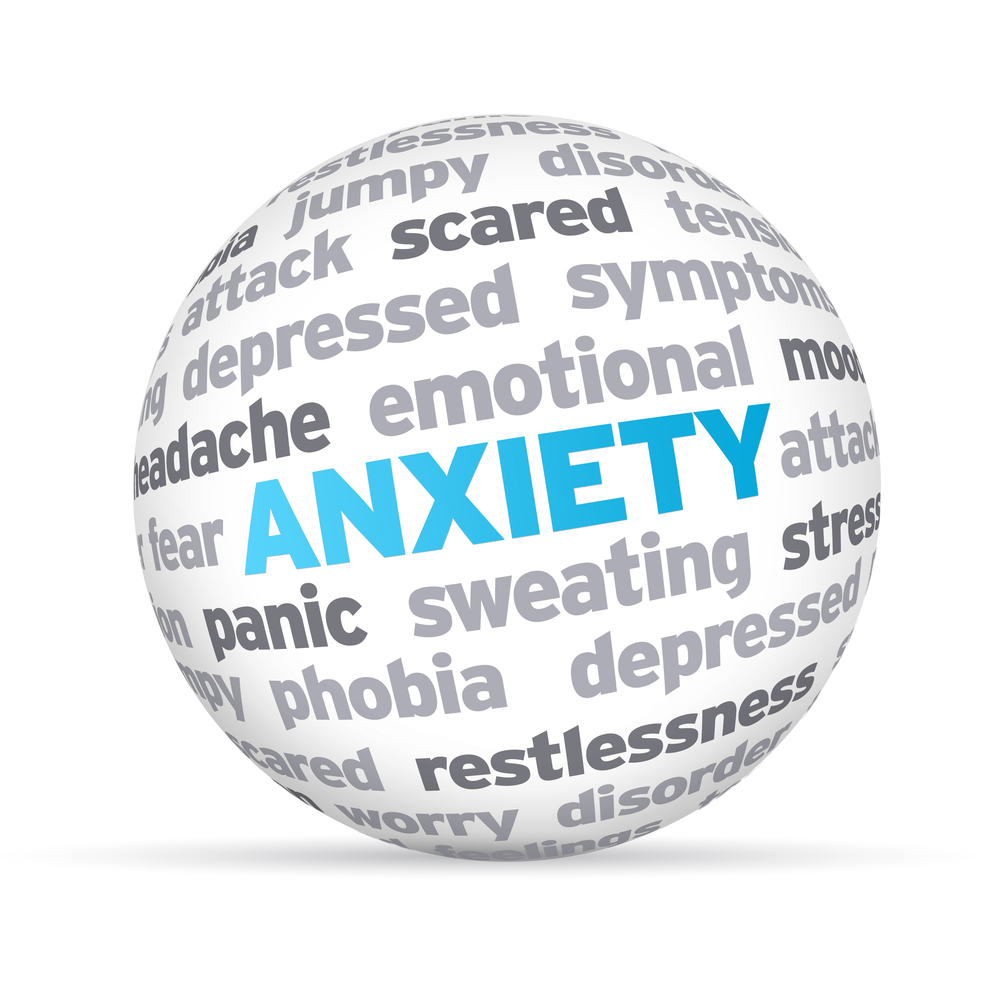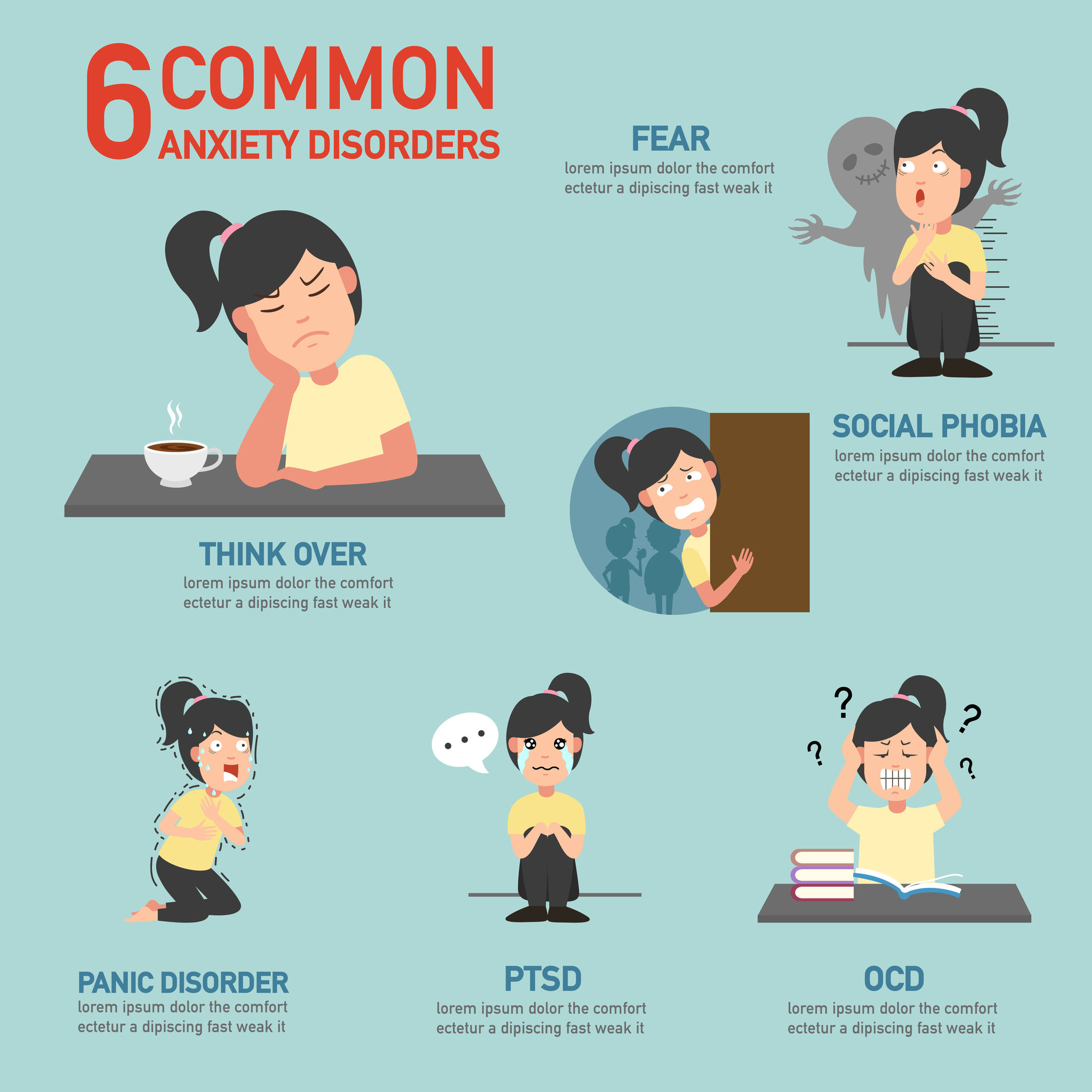One-on-one counselling for anxiety sessions that change lives
One-on-one counselling for anxiety sessions that change lives
Blog Article
Reliable Methods in Counselling for Anxiousness Disorder: A Path to Recuperation
When dealing with anxiety disorders, you may feel overwhelmed and unclear of where to turn. Reliable counselling methods can lead the way for healing, supplying you with the devices to navigate your difficulties. From cognitive-behavioral techniques to mindfulness techniques, each method provides special advantages. Recognizing just how these approaches function together can make a considerable difference in your trip. So, what are the crucial parts that will guide you in the direction of lasting adjustment?
Recognizing Anxiousness Problems: A Comprehensive Summary
When you think of anxiousness disorders, it's vital to identify that they include an array of conditions defined by extreme worry or concern. These disorders can manifest in various ways, including generalized anxiety problem, panic attack, and social anxiousness condition. You could experience symptoms like fast heartbeat, sweating, or trouble focusing. It prevails to really feel overloaded, and these sensations can disrupt daily life.Understanding the origin of anxiousness is crucial. They can stem from genes, brain chemistry, or environmental elements. You might discover that specific situations trigger your anxiety, making it vital to determine these triggers.
Cognitive Behavioral Treatment (CBT): Reshaping Idea Patterns

Mindfulness and Relaxation Techniques: Cultivating Present-Moment Awareness
Mindfulness and relaxation methods assist you grow present-moment awareness, permitting you to take care of anxiety better. By concentrating on the below and currently, you can break devoid of the cycle of concern and rumination that often fuels anxiousness. Start by exercising deep breathing workouts. Breathe in gradually with your nose, hold for a moment, then breathe out through your mouth. This easy strategy can soothe your mind and body.Engage in mindfulness meditation by setting aside a couple of minutes every day to observe your ideas without judgment. Take note of your breath, experiences, and the audios around you. You might likewise find worth in modern muscle relaxation, where you strained and relax each muscle mass group, advertising psychological and physical ease.Incorporating these techniques into your day-to-day regimen can develop a higher sense of control, lower anxiousness signs, and boost your overall well-being. Bear in mind, uniformity is essential to experiencing the benefits.
Exposure Treatment: Facing Concerns Progressively
Exposure therapy aids you encounter your fears slowly, permitting you to build self-confidence in time. By using gradual direct exposure strategies, you can gradually confront what makes you nervous while establishing effective coping mechanisms. This process not just minimizes your worry but additionally empowers you to handle anxiety a lot more properly.
Progressive Exposure Techniques
When you face your anxieties slowly, you can efficiently reduce anxiety and restore control over your life. Gradual direct exposure techniques involve facing your worries step by action, beginning with less daunting scenarios. You could begin by visualizing the feared circumstance, then progress to watching pictures or video clips connected to it. Ultimately, you can practice challenging the anxiety in reality, yet just when you feel ready. This approach enables you to build self-confidence as you move through each phase. Remember to speed on your own; hurrying can enhance anxiety. Celebrate little success along the road, as each step onward encourages you. By regularly applying these techniques, you'll find that your worries start to lose their grasp on your mind.
Structure Coping Systems
Structure reliable coping mechanisms is vital for handling anxiousness, especially as you face your worries gradually through exposure therapy. Start by recognizing your details concerns and damaging them down right into workable actions. By doing this, you can progressively confront each anxiety without ending up being overloaded. For example, if you have problem with social scenarios, beginning by practicing tiny interactions, like welcoming a neighbor.Alongside gradual direct exposure, integrate relaxation methods such as deep breathing or mindfulness to relax your mind before encountering triggers. Maintain a journal to track your progression and commemorate small success. Border yourself with helpful buddies or a therapist that can guide you. Remember, it's a journey-- persistence and determination will certainly enhance your coping mechanisms, causing better resilience versus anxiousness.
Encouraging Therapy: Building Trust Fund and Relationship
To successfully sustain a person with stress and anxiety, establishing trust and relationship is necessary from the really first session. You'll want to produce a secure area where they feel comfy sharing their ideas and sensations without judgment. Active listening is key; show real interest in what they share. Recognize their feelings and validate their experiences. It is essential to be compassionate, as this aids construct a connection and urges openness.Be consistent in your strategy and keep privacy to more enhance that trust fund. Usage open body language and make eye get in touch with to share your listening. Remember, your perseverance goes a long method; structure relationship takes some time, and it's important to appreciate their speed. By cultivating this encouraging setting, you'll equip them to engage more fully in the healing procedure, making it much easier for them to explore their anxiety and work toward recovery.
Team Treatment: Shared Experiences and Collective Healing
Group treatment can be a powerful tool for those managing anxiousness conditions, as it enables individuals to share their experiences and find relief in the understanding of others. In this helpful atmosphere, you can reveal your feelings without anxiety of judgment. Hearing others' stories can normalize your very own experiences, making you really feel less alone in your struggle.Participating in group treatment assists you develop dealing methods with shared knowledge and insights. As you listen to others, you may discover brand-new methods to tackle your anxiousness that you hadn't taken into consideration before.Moreover, the cumulative healing that happens in these sessions can foster a feeling of area, reminding you that you're not encountering your difficulties alone.Building connections with others that recognize your battle can enhance your confidence and inspiration to face your anxiousness. Team therapy creates an area where development and healing become a common journey, equipping you to take steps toward healing.
Incorporating Way Of Life Modifications: Alternative Approaches to Anxiety Administration
While therapy supplies necessary support, integrating way of life changes can greatly improve your capacity to handle anxiety. Begin by integrating normal physical task right into your regimen. Exercise releases endorphins, which can elevate your mood and decrease stress and anxiety. Next, take note of your diet plan. Taking in a balanced diet abundant in fruits, veggies, and entire grains can favorably influence your psychological health. Do not forget sleep-- objective for 7-9 hours per night, as high quality remainder is vital for emotional regulation.Mindfulness practices, such as meditation or yoga exercise, can likewise help you remain based and present. Consider reserving time each day to practice these strategies. Limitation caffeine and alcohol consumption, as they can aggravate anxiety symptoms. By making these all natural changes, you produce a stronger structure for taking care of anxiousness, matching the benefits got from treatment. Remember, every small step depend on your path to healing.
Often Asked Concerns
What Are the Common Physical Signs And Symptoms of Anxiousness Disorders?
Typical physical signs of stress and anxiety problems include quick heart rate, lack of breath, muscle mass stress, sweating, and headaches. You might also experience tiredness, dizziness, or intestinal problems, which can better complicate here your every day life.
How Much Time Does Therapy for Stress And Anxiety Commonly Take?

Therapy for anxiety commonly takes a few weeks to several months, relying on your specific demands and progression. counselling for anxiety. You'll discover that regular sessions help you establish coping techniques and gain understandings into your stress and anxiety
Can Anxiousness Problems Be Entirely Cured?

What Should I Perform in an Anxiety attack?
Throughout a panic attack, emphasis on your breathing. Breathe in deeply through your nose, hold for a moment, then exhale slowly - counselling for anxiety. Ground on your own by naming things around you, and advise yourself it will certainly pass
Are There Medications for Anxiety Disorders?
Yes, there are a number of medicines for stress and anxiety disorders, consisting of antidepressants and benzodiazepines. You must speak with a health care expert to find the best therapy plan tailored to your specific needs and situations for the finest outcomes. When you believe regarding anxiousness disorders, it's important to identify that they include a variety of problems identified by excessive worry or concern. These conditions can materialize in various ways, including generalized anxiousness condition, panic problem, and social anxiety condition. Structure reliable coping systems is crucial for handling stress and anxiety, especially as you face your fears slowly via exposure therapy. Group treatment can be a powerful tool for those dealing with stress and anxiety conditions, as it permits people to share their experiences and discover solace in the understanding of others. As you listen to others, you might discover new ways to tackle your anxiety that you hadn't considered before.Moreover, the collective recovery that takes place in these sessions can foster a feeling of community, advising you that you're not encountering your difficulties alone.Building connections with others that recognize your battle can increase your confidence and motivation to face your anxiety.
Report this page